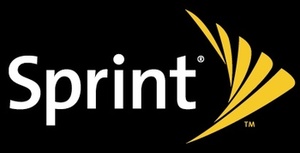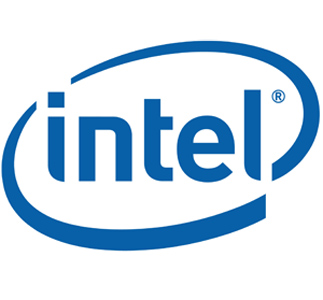 Clearwire CEO Ben Wolff calls the Sprint Nextel, Clearwire, Google, Intel, Comcast, Time Warner Cable, and Bright House Networks WiMax joint venture announced today “the most complex deal anyone has ever done.”
Clearwire CEO Ben Wolff calls the Sprint Nextel, Clearwire, Google, Intel, Comcast, Time Warner Cable, and Bright House Networks WiMax joint venture announced today “the most complex deal anyone has ever done.”
No kidding. Get out your scorecards kids, you’re gonna need ‘em.
Sprint Nextel, the No. 3 wireless carrier in the United States, and Clearwire, a Kirkland, Wash.-based startup company founded by cellular pioneer Craig McCaw, are pooling their wireless broadband spectrum and engineering resources to create a $14.55 billion communications company that will retain the Clearwire name.
Clearwire’s purpose is to continue developing a nationwide mobile network based on WiMax, one of two next-generation wireless broadband technologies that promise Speed Racer-like performance. Clearwire’s other goal is to build this “4G” network as fast as it can ahead of the U.S.’s two largest wireless operators, AT&T and Verizon, which have chosen (at least for now) to build LTE (Long Term Evolution) networks.
Along for the ride are outside investors, including Google, Intel, Comcast, Time Warner Cable, and Bright House Networks. They will kick in a total of $3.2 billion to give them a 22 percent stake in the new company.
Sprint holds the majority of stock at 51 percent, with Clearwire holding 27 percent.
All in all, the joint venture and formation of Clearwire is pretty darn impressive and a sign that the battle for control in the U.S. mobile industry is far from over. In fact, it’s still heating up and getting more interesting by the day.
“The agreement enables us to get to market faster and reach a broader audience than we could have if we went it alone,” Dan Hesse, Sprint Nextel’s chief executive officer, told analysts on a conference call.
 Before today’s announcement, Sprint Nextel was the third-biggest wireless carrier in the country with the largest holding of WiMax spectrum. Sprint, however, has been saddled with $20.5 billion in debt (its 2005 purchase of Nextel for $35 billion is worth about $5 billion now).
Before today’s announcement, Sprint Nextel was the third-biggest wireless carrier in the country with the largest holding of WiMax spectrum. Sprint, however, has been saddled with $20.5 billion in debt (its 2005 purchase of Nextel for $35 billion is worth about $5 billion now).
Clearwire, the nation’s No. 2 holder of WiMax spectrum, is also hindered by debt, although on a smaller scale. Despite its pedigree in McCaw, Clearwire is still a small-time player.
Together, in theory, the new Clearwire of Sprint Nextel and Clearwire has a nationwide footprint that will rival that of AT&T and Verizon.
Neither Sprint nor Clearwire can afford to build out a WiMax network on their own — it’s estimated to cost between $12 billion and $20 billion to construct — so the involvement of Google, Intel, Comcast, Time Warner Cable, and Bright House Networks becomes critical.
 Google is the most tantalizing of the partners. For a mere $500 million, Google, the mobile industry outsider, continues to position itself exceedingly well (mocoNews).
Google is the most tantalizing of the partners. For a mere $500 million, Google, the mobile industry outsider, continues to position itself exceedingly well (mocoNews).
- It has the right to develop Internet and advertising services and applications for Clearwire WiMax devices, extending into the mobile space.
- It will be the default search provider and preferred application provider for Clearwire’s new retail products.
- Clearwire will use Google’s mobile operating system, Android, for future voice and data devices.
- Google’s mobile search will be the default provider for Web and local searching on the Sprint portal for current and future customers.
- Google will get applications such as Google Maps and YouTube on Sprint phones.
Best of all, Google sort of hedges its bet on the mobile industry. By partnering up with Clearwire, Google will have guaranteed outlets for mobile search and advertising, its mobile operating system, and Android-developed applications.
Who knows what its future relationship will be with AT&T and Verizon, especially after making so much noise about open networks during the recent U.S. 700 MHz spectrum auction. Google’s bid didn’t win, but it did trigger the open network clause, which spectrum winner Verizon must now abide by.
Clearwire’s WiMax network will be completely open, while there is speculation by Google that maybe Verizon’s and AT&T’s promises of open networks may not be so open after all. We’ll see.
 Intel ($1 billion investment), of course, hopes to sell boatloads of WiMax chipsets for mobile handsets, portable devices, and accessories. Comcast ($1.05 billion), Time Warner Cable ($550 million), and Bright House Networks ($100 million) will now have the capability to sell wireless services, giving them another way to fight customer defections to telephone companies like Verizon who offer video services through products such as FIOS.
Intel ($1 billion investment), of course, hopes to sell boatloads of WiMax chipsets for mobile handsets, portable devices, and accessories. Comcast ($1.05 billion), Time Warner Cable ($550 million), and Bright House Networks ($100 million) will now have the capability to sell wireless services, giving them another way to fight customer defections to telephone companies like Verizon who offer video services through products such as FIOS.
“We believe this strategic partnership makes sense for both operators and is a positive for Sprint as it addresses one pressing strategic issue,” Oppenheimer & Co. analyst Tim Horan said in a research note. “The $3.2 billion to be reportedly raised from third party investors should help make the cost of a network build-out more manageable.”
True. But what about the Clearwire deal as a whole? Managing two primary partners and five outside investors, all of which have agendas, expectations, investors, and egos, will be too-many-cooks-in-the-kitchen difficult.
And there are absolutely no guarantees that the build-out will go smoothly, that there will be no technical glitches, and that its supposed two-year head-start over AT&T and Verizon can be maintained. If there’s anything about AT&T and Verizon we’ve learned through the spectrum ordeal was don’t piss off these guys. They are still the most powerful players in the U.S. wireless industry.
Which leads to the question: Who will sign up for Clearwire? The Silicon Alley Insider says one obvious choice is business travelers, but as far as new WiMax-capable devices, these won’t be available en masse until next year. And will they be worth purchasing?
The same can be said for Android, which continues to be hyped-up but few have seen real working handsets. These are not due until late this year and in 2009, but we have no idea yet if these first-generation devices will be worth buying.
All in all, as Erick Schonfeld notes at TechCrunch, AT&T and Verizon “have a huge head start and customer lock-in when it comes to cell phone service.”
Can Clearwire deliver a reasonably bug-free nationwide wireless network by 2010, ahead of AT&T and Verizon, and make it compelling enough to make people want to jump ship and sign up? There’s certainly a chance — if the complexities don’t get in the way.
